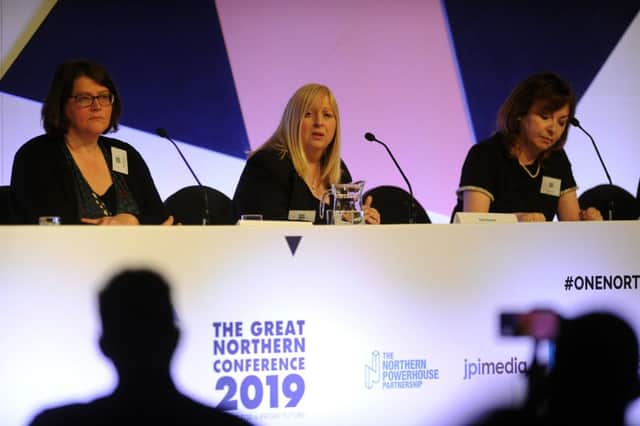‘Mentoring from business leaders can boost economic growth’


The challenge was thrown down by Lord Jim O’Neill, the former Commercial Secretary to the Treasury, during a debate about the importance of improving education and skills.
Lord O’Neill joined other speakers in warning that the North was still blighted by areas of disadvantage. However, the speakers stressed that business leaders could play a major role in reducing the skills deficit.
Advertisement
Hide AdAdvertisement
Hide AdStephanie Burras, the Leeds-based chief executive of the Ahead Partnership, a social enterprise which encourages businesses to mentor pupils, said: “Helping young people to be successful is also helping to develop the future workforce that businesses will need to achieve their economic potential.”
She urged companies to think deeply about their corporate purpose,
She added: “Is it to make a profit or deliver a broader benefit?”
She said nobody was better placed than employers to understand what the skills of the future will be.
Advertisement
Hide AdAdvertisement
Hide AdOver the last 13 years, the Ahead Partnership has worked with more than 2,000 businesses and partner organisations. It has helped around 200,000 young people to find the opportunities they need to progress.
However, there have been concerns that many young people are leaving the North because they believe there are more opportunities in London and the South East.
Ms Burras, who is a former lawyer, added: “How do we make work exciting and real? It is about making sure that we have a strong skills and talent base to support the growth of the economy in the future.
“We need an exciting Northern narrative; a consistent positive message about the North that’s being reinforced.
Advertisement
Hide AdAdvertisement
Hide Ad“We need to get them to re-imagine the North as the place they want to stay.
“We must be helping them to develop hope and confidence. We need to connect them and provide access to networks.”
Coun Susan Hinchcliffe, the leader of Bradford City Council, said steps were required to facilitate life long learning and employers needed to have a much bigger role in further education.
She added: “If austerity has taught me anything, it is that every penny counts.”
Advertisement
Hide AdAdvertisement
Hide AdShe highlighted the rich potential of Bradford’s economy, in a city where 25 per cent of the population is under 16.
Coun Hinchcliffe added: “Investment in schools does take time and is not a quick fix. We need to make sure that the Northern Powerhouse works, but that will be only if people have the skills to be part of it.”
Vanda Murray OBE, the chairman of Marshalls plc and pro-chancellor of Manchester Metropolitan University, said that business was facing an unprecedented rate of change.
She added: “We need leadership teams that are willing to embrace change. We all need to mentor people and not just young people. If we don’t, we are going to be left behind.”
Advertisement
Hide AdAdvertisement
Hide AdElaine Bowker, the chief executive of the City of Liverpool college, said she felt “very positive” about the German approach to improving the skills system.
She added: “Education is a staging post. You have to be led and governed by people in business.”
She said that the college’s success had been largely down to mentoring.
She added: “A lot of it is down to mind-set and collaboration.”
The Great Northern Conference attracted leading figures from business and education to New Dock Hall in Leeds to discuss the biggest economic issues facing the North of England.